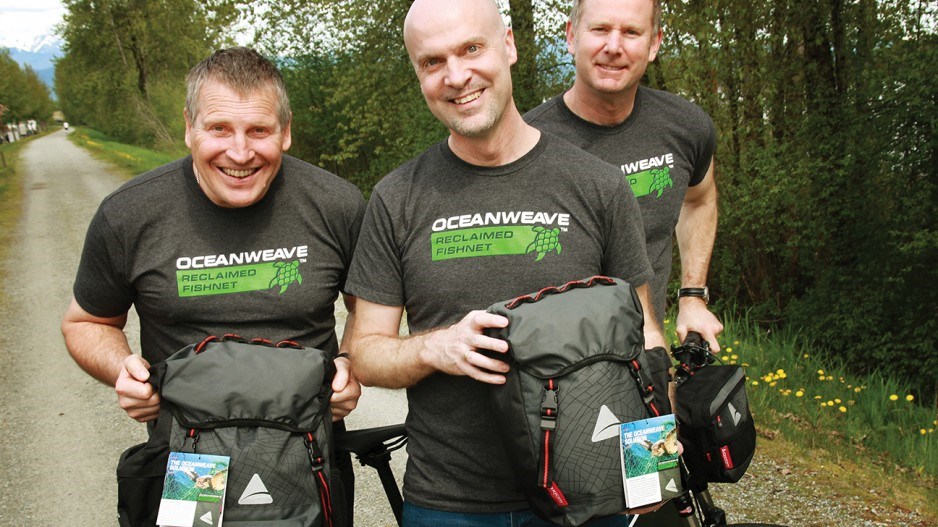Vancouver's Greenest City initiative to reduce waste is creating an opportunity for local businesses that use recycled materials to drive profits.
Last month, Port Coquitlam-based Axiom Cycling Gear unveiled a new line of Oceanweave cycling bags made out of recycled fishnets from the Yellow Sea.
Axiom product manager Andrew Belson got the idea to use fishnets four years ago from his then eight-year-old son.
“My son was in tears after he saw pictures of turtles stuck in nets. He asked me, ‘Why doesn’t somebody do something about the nets?’ It gave me a kick in the butt to get going on it.”
The abandoned fishnets are collected by fishermen and others who sell them to Axiom’s fabric maker. The nets are taken to a processing facility in South Korea to remove heavy metals, dyes and harmful chemicals. What’s left is a mass of polyester yarn that is then sent to Qingdao in China for manufacturing.
According to Metro Vancouver’s 2016 report on waste composition, total waste in the city dropped by 79,000 tonnes from 2014 to 2015, but the percentage of plastic products thrown out grew by 3%.
Of the total 19% plastic waste in 2015, a fifth comes from used clothing and synthetic textiles, like polyester material used most often in sports apparel.
At 4% of Metro Vancouver’s total waste, textiles are not the biggest source of garbage, but synthetic textiles have a disproportionately large impact on the environment, said Andrew Marr, director of solid waste planning at Metro Vancouver.
“There’s an emerging concern around microplastics. There can be tens or even hundreds of thousands of tiny, microplastic particles released from washing.
“Clothing is a necessary thing, but we really don’t want to see it wasted wherever it’s possible to reuse a garment.”
Axiom’s goal is to minimize environmental harm by providing customers with an alternative to bags produced with new microplastics.
“There’s a phrase we use: ‘The greenest product is the product you don’t throw away,’” Belson said. “So we’re trying to bring green sourcing into it, but we also try to build things to last, so they won’t end up in a landfill or won’t end up at the end of the recycling chain, because you can only recycle a certain number of times before your plastic becomes useless.”
Metro Vancouver officials are discussing the feasibility of banning microplastic textiles, but Marr said a full ban on textile waste is unlikely because, unlike food waste, which can be composted no matter how old it is, clothing can become too dirty or damaged to be resold or recycled into industrial rags – which means it has to be thrown out.
Metro Vancouver is considering other alternatives, including an educational campaign to promote reuse and donation of clothing.•




